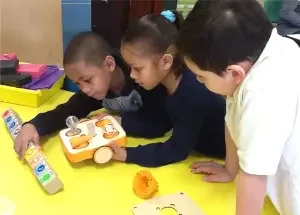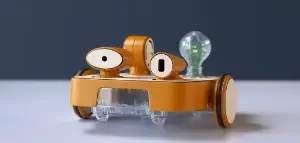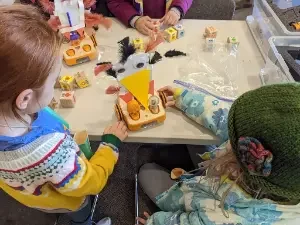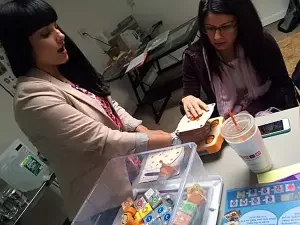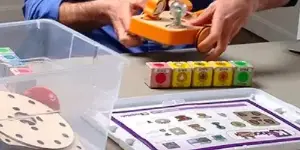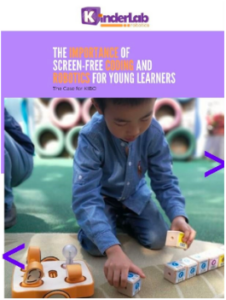TuftsNow: Coding in the Playroom
KIBO was featured in TuftsNow where they feature the orgins of the screen-free robot.
The article reads in part:
“To promote that deeper level of knowledge, Bers and dozens of Tufts students have worked for the last eight years to develop a small robot that children ages 4 to 7 can program themselves using wooden blocks; the kids have fun while putting logic and problem-solving concepts into practice.
When Bers began presenting her prototype robot to teachers and parents a few years ago, invariably people would ask how to buy one. She had nothing to offer. “I would have to tell them they can’t buy one because it’s a research project,” she says. “I started feeling like a fake. What am I doing with this research and grant money if I can’t make [the robots] available?”
Bers, a professor in the Eliot-Pearson Department of Child Study and Human Development and an adjunct professor in the Department of Computer Science at Tufts, is in the business of promoting children’s positive development, but she is not a businessperson. Enter Mitch Rosenberg, an engineer and veteran executive of several start-up robotic companies. The two have formed KinderLab Robotics Inc., which will manufacture the KIBO, a robot kit they will sell to parents and schools through a license from Tufts.
They launched a Kickstarter campaign to raise money to produce the kits, and have already reached their initial goal of $50,000. Their new goal is to raise $65,000 by June 29 so they can create a KIBO project guide; if the campaign garners $80,000, they will start a fund to supply kits to schools that couldn’t otherwise afford them.
It’s important for young children to learn about technology before they develop preconceived notions about who is good at science, technology, engineering and math, Bers says. Research shows that women and minorities often dismiss careers in technical fields at a very young age. “By fourth grade, stereotypes are already formed,” she says. “You have to start early before they have preconceptions.”
Read the full article.

